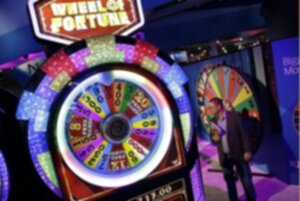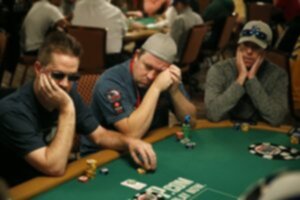An Australian casino has had to pay out more than $221,000 (AU$320,000) after a court found they wrongly withheld a slot machine jackpot from a disabled player.
David Joe was awarded the sum Friday by a district court in Sydney, which found the Star casino had illegally refused to hand over the jackpot back in October 2019.
Joe, who suffers from motor neurone disease, holds a Platinum Vantage VIP membership at the casino and asked his friend Lois Lie for help when playing the “pokies” – Australia’s name for slot machines – one day.
The pair played for a few hours and eventually struck gold when landing a $197,000 (AU$285,000) jackpot with a AU$10 bet on the Year of the Tiger slot.
But the casino refused to pay up. Instead, they gave the money to New South Wales’s Responsible Gaming Fund.

Star Casino’s Argument
The reason for the refusal was that Star argued Lie, who was operating the machines for Joe, was banned from the casino – and therefore surrendered his right to the cash.
Indeed, Lie had signed a voluntary exclusion order in October 2016, and the casino claimed he was therefore not allowed on the premises. However, Lie argued he believed the exclusion order had lapsed, seeing as he’d been visiting the casino for the past six months without being denied entry.
Judge Robert Montgomery had to therefore decide if Star were right to deny Joe the money based on their position over Lie.
“In the context of their playing machines for several hours, [Joe’s] truly significant disability plainly deprived him of the ability to operate the machines himself for enjoyment,” wrote the judge.
The Decision
The court heard how Joe, unable to play the pokies due to his disability, had asked his friend Lie to help out. Lie operated the levers but it was Joe’s card in the machine that was funding the gaming.
Judge Montgomery concluded that because Joe had taken the financial risk, it was he who was playing the pokies and therefore he who was in line to receive any winnings.
“The whole of the economic stake wagered during the operation of gaming machines by Mr Lie, whilst [Joe’s] card was inserted and he watched and gave Mr Lie directions, was [Joe’s] money,” the judge said.
“Accordingly, [Star’s] failure to pay the winnings… was misconceived and breached the contract of wager between the plaintiff and the defendant.”
Future Impact
The decision of the court to side with Joe in this instance highlights the viability a disabled player has in claiming rewards owed to them, even if they didn’t have the hand on the lever when the casino games were being played.
It is the second legal battle Star has lost recently, after a judge ordered the casino to reverse a ban on two players it had accused of cheating. Mark Timothy Grant and Nathan Trent Anderson had spotted flaws in the game pontoon, such as “sloppy dealers” and card blemishes. Their ban was finally overturned after they filed a complaint in Queensland.
Court wins are big deals for gamers, who are forced to stump up plenty of cash to bring proceedings like this in front of a judge.
Meanwhile, Star’s latest financial figures show a net loss of $122.9m (AU$178.1m) for the 2022 fiscal year.





